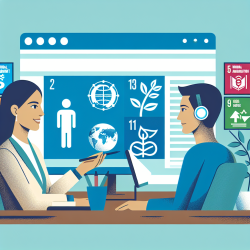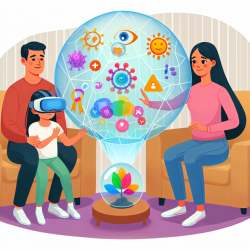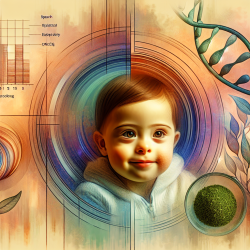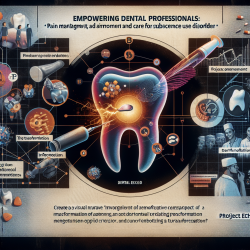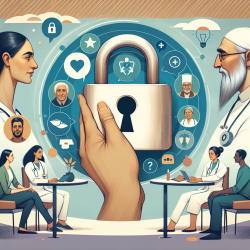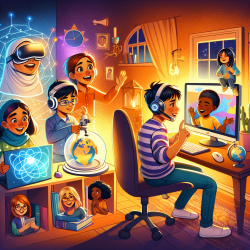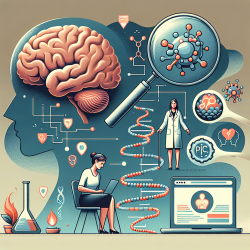In recent years, the global emphasis on sustainable development has reached unprecedented heights, driven by the United Nations’ Sustainable Development Goals (SDGs). These goals, adopted in 2015, aim to address critical global challenges by 2030. For companies like TinyEYE, which provides online therapy services to schools, understanding and integrating the principles behind these goals can be transformative. The research article "The UN’s Sustainable Development Goals: Can multinational enterprises lead the Decade of Action?" offers valuable insights that can be leveraged to enhance the effectiveness and reach of online therapy services.
Understanding the SDGs
The SDGs encompass 17 goals with 169 targets and 231 indicators, collectively known as the ‘Global Goals’. They aim to address a wide range of issues, from poverty and hunger to education and climate action. Multinational enterprises (MNEs) are seen as crucial players in achieving these goals due to their resources, influence, and global reach. However, progress has been slow, prompting the UN to declare a ‘Decade of Action’ to accelerate efforts.
Applying SDG Insights to Online Therapy
Online therapy providers like TinyEYE can benefit significantly from aligning their practices with the SDGs. Here are some actionable strategies based on the research findings:
- Adopt a Holistic Approach: The SDGs emphasize the interconnectedness of global challenges. Online therapy services can adopt a holistic approach that considers the diverse needs of students, addressing not only their immediate therapeutic needs but also factors like socio-economic background, family dynamics, and educational environment.
- Promote Inclusive Education (SDG 4): Ensure that therapy services are accessible to all students, including those from marginalized communities. This aligns with SDG 4, which aims to provide inclusive and equitable quality education for all.
- Leverage Technology for Good (SDG 9): Utilize innovative technologies to enhance therapy services. This can include developing new digital tools, using data analytics to track progress, and ensuring secure, confidential communication channels.
- Foster Partnerships (SDG 17): Collaborate with schools, government agencies, NGOs, and other stakeholders to create a supportive ecosystem for students. Partnerships can help pool resources, share best practices, and scale successful initiatives.
Encouraging Further Research
While the insights from the research article provide a solid foundation, continuous improvement in online therapy practices requires ongoing research and adaptation. Practitioners are encouraged to stay updated with the latest developments in the field and actively seek out new knowledge. This can involve:
- Participating in Professional Development: Attend workshops, webinars, and conferences focused on sustainable practices and innovative therapy techniques.
- Engaging in Collaborative Research: Partner with academic institutions or research organizations to conduct studies on the impact of online therapy and identify areas for improvement.
- Implementing Feedback Mechanisms: Regularly gather feedback from students, parents, and educators to understand their needs and refine therapy services accordingly.
Conclusion
Integrating the principles of the SDGs into online therapy practices can enhance the effectiveness, inclusivity, and sustainability of services provided by companies like TinyEYE. By adopting a holistic approach, leveraging technology, fostering partnerships, and encouraging continuous research, practitioners can make a significant impact on the lives of students and contribute to the broader goal of sustainable development.To read the original research paper, please follow this link:
The UN’s Sustainable Development Goals: Can multinational enterprises lead the Decade of Action? 